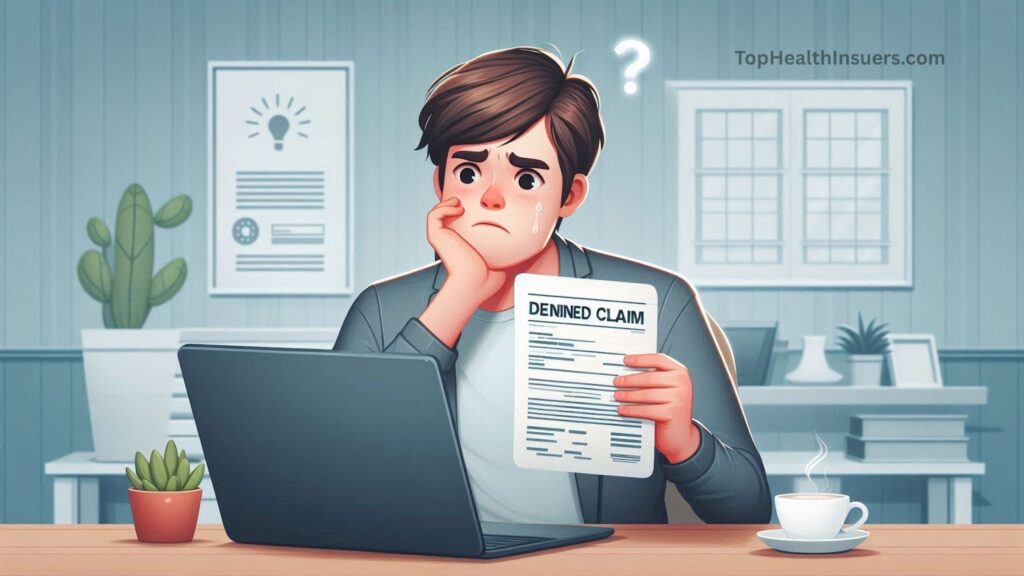Which Insurance Plans Cover Self-Employed Individuals?
No matter where you work—whether you run your own business or work for someone else—having health insurance is important. Most employees working in private or government jobs usually get health coverage from their employer. But if you’re self-employed, that’s not the case. So, if you’re running your own business or working in an informal setup, it’s wise to buy health insurance designed for self-employed individuals.
What Is Health Insurance for Self-Employed People?

Health insurance for self-employed individuals gives you financial protection against medical expenses if you get sick or injured. It helps cover hospital bills, treatments, and other health-related costs, so your savings stay safe during emergencies.
These plans often cover both hospital and non-hospital expenses and can also include your entire family—like your spouse, kids, and even your parents or in-laws.
Why Should Self-Employed People Buy Health Insurance?
Here are some major benefits of getting a health insurance plan if you’re self-employed:
✅ Medical Support When You Need It
Your insurance will take care of hospital bills and treatment costs during a health emergency, giving you access to quality care without the financial stress.
✅ Affordable Premiums
Many plans come with attractive discounts, making them budget-friendly.
✅ Covers Your Family Too
You can get coverage not just for yourself but for your whole family under one plan.
✅ Keeps Your Finances Stable
Unexpected medical bills won’t eat into your income or savings, which is especially important if your business is small or growing.
✅ Cashless Hospitalization
If you go to a hospital in your insurer’s network, you won’t have to pay upfront—the insurer settles the bill directly.
✅ Tax Savings
You can also save on income tax by claiming deductions on your premium under Section 80D of the Income Tax Act.

Also Read: What’s the Difference Between Copay and Coinsurance?
Types of Health Insurance Plans for the Self-Employed

There are mainly two types:
🔹 Individual Health Insurance
This plan covers just you. Family members can be added, but each will have a separate coverage amount, making the premium slightly higher.
🔹 Family Floater Health Insurance
This one covers your entire family under a shared sum insured. It’s more affordable and great for family-focused coverage.
What’s Covered in These Plans?
Here are some common things these plans include:
- In-patient hospital stays
- Daycare procedures
- Pre- and post-hospitalization expenses
- AYUSH treatments (Ayurveda, Yoga, etc.)
- Ambulance charges
- Organ donor expenses
- Home hospitalization (in certain cases)
Coverage varies from plan to plan, so always check the details before buying.
What’s Not Covered?
Some expenses are usually not covered, such as:

- Injuries from self-harm
- OPD (Outpatient) treatments
- Illnesses caused by alcohol or drugs
- Dental work (unless it’s an emergency)
- Cosmetic or plastic surgery
- Experimental or unproven treatments
- Infertility treatments
Again, exclusions can vary depending on the policy, so always read the fine print.

Also Read: What Plans are Best for Low-Income Individuals?
Who Can Buy These Plans?
If you’re working for yourself or in the informal sector, you can get this kind of health insurance. It’s ideal for:
- Business owners
- Freelancers
- Farmers
- Taxi/Rickshaw drivers
- Domestic helpers
- Laborers
- Entrepreneurs
- Retail shop owners
- Small business partners
- Blue-collar workers
- Anyone in unorganized jobs
How to Pick the Right Plan?
Here are some tips to help you choose the best plan:

🔍 Check the Coverage
Look at what’s included and what’s not. Don’t sacrifice coverage just to save a few bucks on the premium.
💰 Choose the Right Sum Insured
Estimate your yearly medical needs and pick a plan that can cover them. Low coverage may cost less now but more later.
💸 Compare Premiums
Shop around online. Find a plan that offers great value without burning a hole in your pocket.
➕ Look at Add-on Benefits
Add-ons like maternity cover, critical illness, or daily hospital cash can be useful. Pick the ones that match your needs.
♻️ Lifetime Renewability
Go for a policy that you can renew for life—it’s a big plus in the long run.
🚫 Watch Out for Deductibles
Avoid plans with high deductibles (the part you pay before insurance kicks in), as they can be hard to manage during emergencies.
🏥 Network Hospitals
Check if the insurer has a wide hospital network near you. It helps during cashless claims.
📊 No Co-payment or Limits
Avoid plans that require you to pay part of the bill or have sub-limits on things like room rent or surgery costs.
📈 Claim Settlement Ratio
Always choose insurers with a high claim settlement ratio. It shows they are more likely to pay out when you need them to.

Also Read: How does the Massachusetts Health Connector Work?
Final Thoughts
Being self-employed comes with many responsibilities—and protecting your health is one of the most important ones. Buying a good health insurance plan gives you peace of mind, financial safety, and support when it matters most. Compare your options, know your needs, and pick the one that fits your life best.

Post Comment